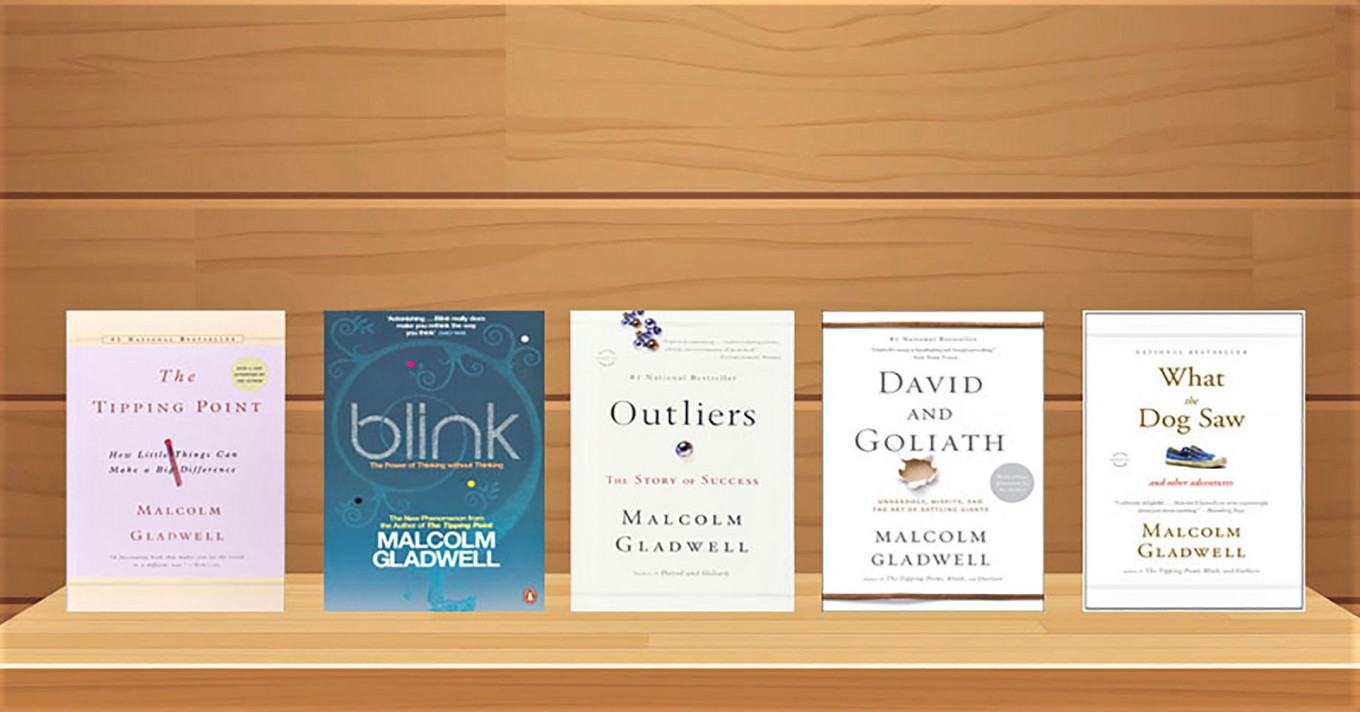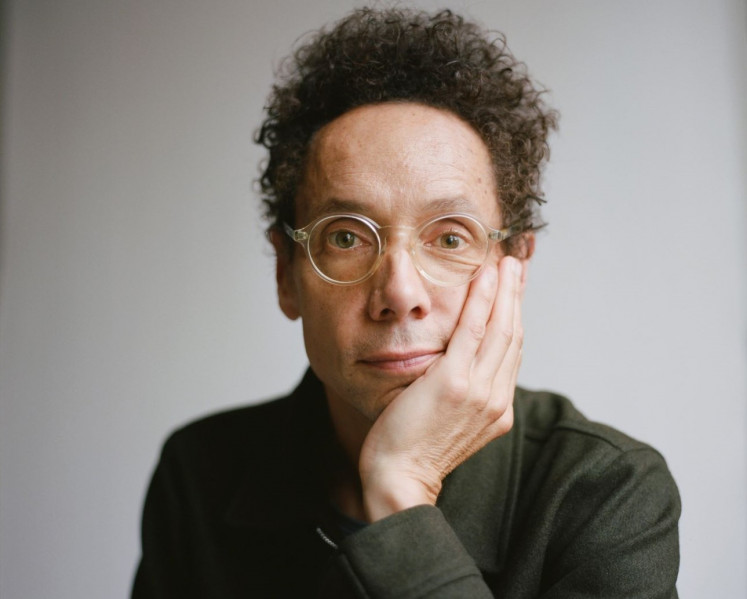Popular Reads
Top Results
Can't find what you're looking for?
View all search resultsPopular Reads
Top Results
Can't find what you're looking for?
View all search resultsMalcolm Gladwell and his tipping point
Author Malcolm Gladwell reveals his take on writing best-selling books.
Change text size
Gift Premium Articles
to Anyone
W
hile some people take things in life as facts or accept a “because it’s so” explanation of matters like unconscious bias when meeting new people or the reasoning behind spur-of-the-moment decisions, author and journalist Malcolm Gladwell seeks to unravel the mysteries behind the ordinary.
In his best-selling debut book The Tipping Point, he examined the so-called “tipping point” in various formats – like how patient zero can lead to a global pandemic or how even one person can jumpstart a trend, in a more benign example.
In the book, he outlined three factors – or agents – of change: The Law of the Few or the Pareto principle, where 80 percent of consequences are caused by 20 percent of the causes; The Stickiness Factor, where the specific content of a message can provide a memorable impact; and The Power of Context, which stipulates that human behavior is always context-sensitive to the environment.
When it was published in 2000, The Tipping Point resonated greatly with readers, and the book sold millions of copies, landing it a place on the New York Times’ bestsellers list and resulting in it being named one of the 21st century’s 100 best books by The Guardian in 2019.
Other books by Gladwell also explore oft overlooked themes, like decision making (Blink, 2005), high achievers (Outliers, 2008), underdogs (David and Goliath, 2013), and dealing with the unknown (Talking to Strangers, 2019).
With his flair for mixing anecdotes and research notes, it’s no wonder that Gladwell was named as one of the 100 Most Influential People by TIME in 2005 and was even considered again in 2011.
When asked what exactly drives him to take a closer look at these issues, the Canadian said he was curious by nature and enjoyed looking at things from “unusual” perspectives.
“Once I’ve written something, I never go back and reread it. Once I’m finished with it, I’ve lost interest in it and I’m on to the next thing. So maybe there’s something in my restlessness that keeps me inspired,” he said in an interview on the heels of IDEAFest attended by The Jakarta Post.
However, he also observed that many people, as they grow older, tend to lose their appetite for new things even as they gain new experiences along the way.
Gladwell said he tries his best to expose himself to new ideas and new people, as he does not wish to become “stale”, in the way he thinks some older journalists and writers are.
Even the age-old obstacle of writers’ block is a non-issue for him, something he attributed to his early days working at a newspaper.
“I had to write nearly every day, and that cured me of any writers’ block. You can’t be a newspaper reporter if you have writers’ block. I think it’s impossible, right?”
The writing was not the hard part, he said. Instead, it was the thinking that came before the writing process, such as establishing the topic, researching, finding sources and so on.
“By the time it comes to writing, I feel like all the hard work has been done, and then I’m just putting things on the page. It’s the preparation for writing that’s the challenge.”
When the topic inevitably turned to the current pandemic – after all, he did say in The Tipping Point that ideas, messages and behaviors spread like viruses do – Gladwell took a rather diplomatic approach in saying that the handling was not as good as expected.
“But at the same time, it’s a really difficult problem for us, dealing with a contagious disease – particularly one where we don’t have a good understanding of who it’s going to affect the worst, how it spreads, how to treat it,” Gladwell said.
“If COVID was something that struck every fall and we were in the tenth year of COVID, we would be responding in a very different way. We’ve never had this in this form before.”
He also noted previous pandemics like the influenza pandemic of the late 1950s and the 1918 Spanish flu, but said there were few who could remember those times, which highlighted the needs for society to practice dealing with challenges like COVID-19.
He said he was not surprised that it had been difficult, for democratic countries in particular, to make sure everyone behaved appropriately.
“I expect by the time this happens again – and it will happen again – we’ll do a much better job.”
As sheltering in place has been made mandatory in a wide variety of locations, Gladwell said that his productivity had increased, but at the same time, he missed many things that traveling offered.
“Think about all the things I’ve missed. I’ve never been to Indonesia before. I would have met you all in person. I would have experienced its culture for the first time. There are a thousand unexpected experiences I would have had that I’ll never have now,” he said.
“So I really do think that although I have more time for myself, the cost of the pandemic is much greater than the benefit for someone like me. I’m someone who, for my work, needs to be exposed to new ideas, new people and new cultures. That’s being denied to me.”
Traveling, he said, offered the chance to meet people and find ways they were similar and dissimilar to himself.
“I feel like every culture in the world has something to teach us. We don’t know in advance what that is. That’s why you travel,” Gladwell said.
“If I knew in advance what I would learn from going to Indonesia, I would just read a book. You pick up something different every time you experience something, so my mind would be entirely open to what I would learn.” (ste)












